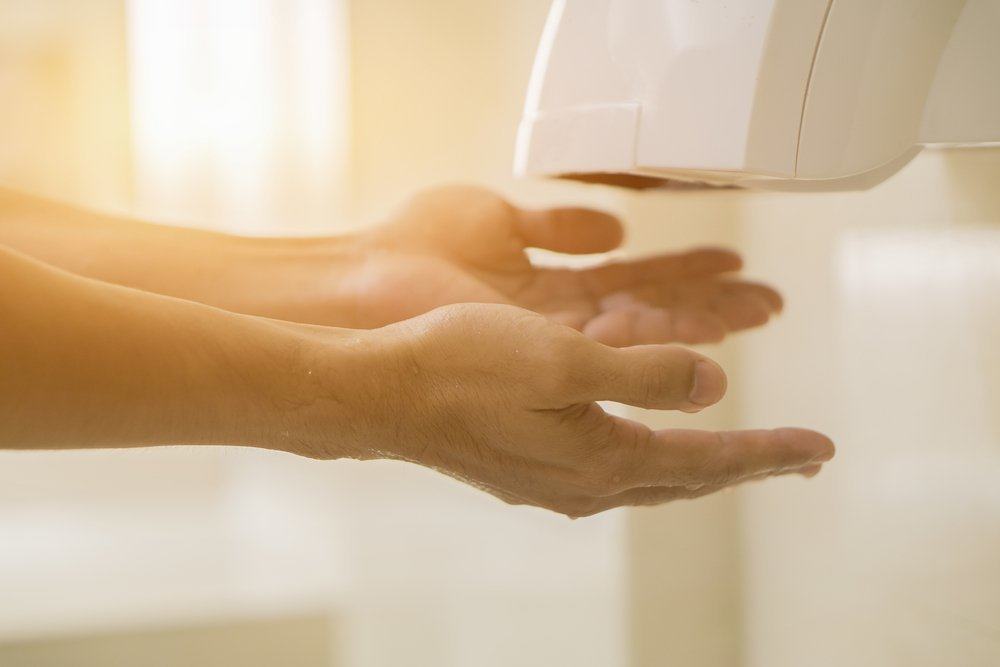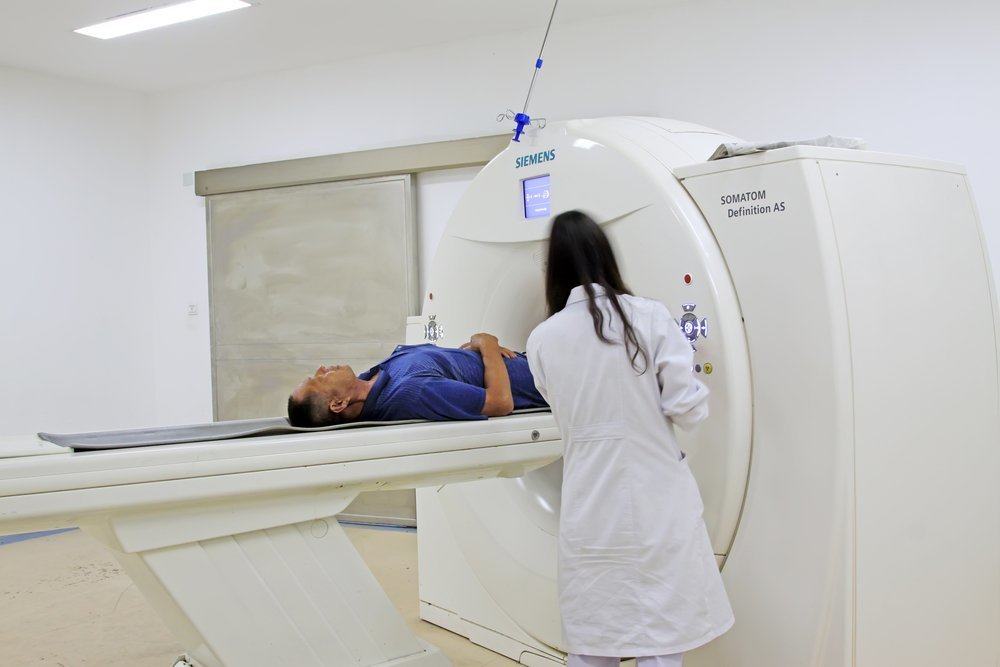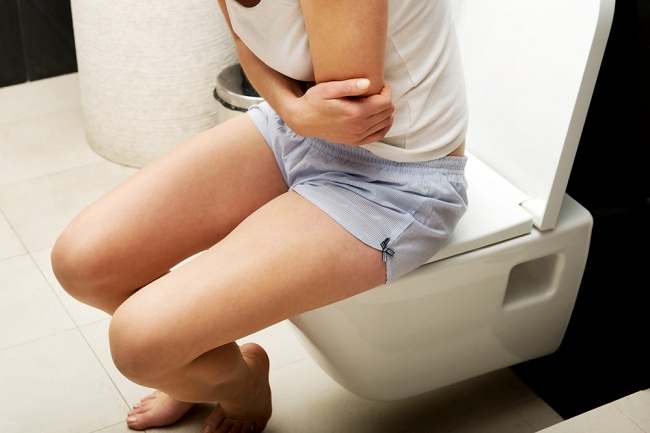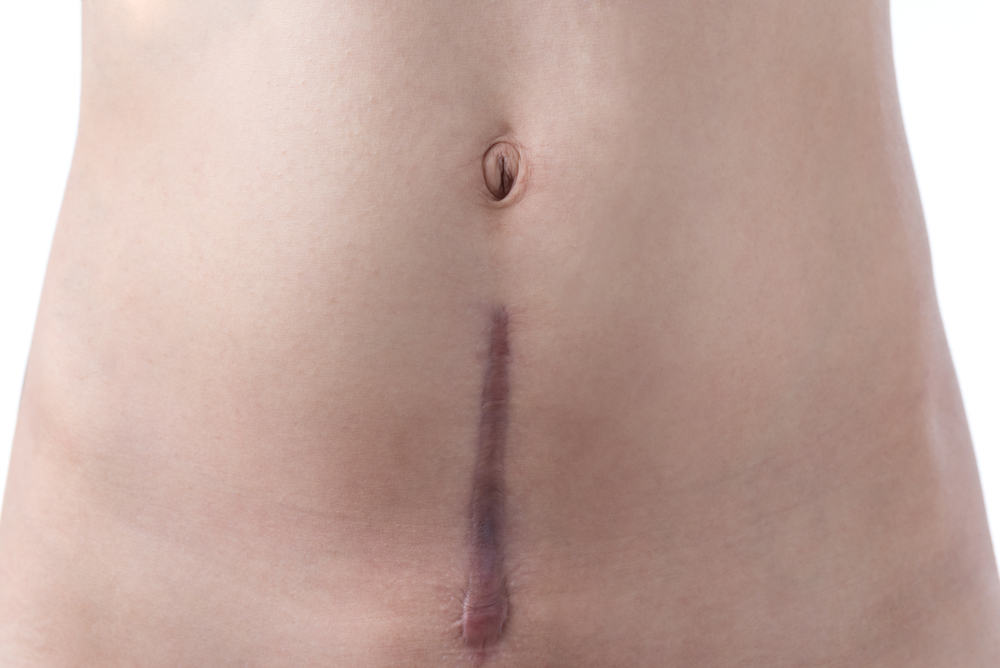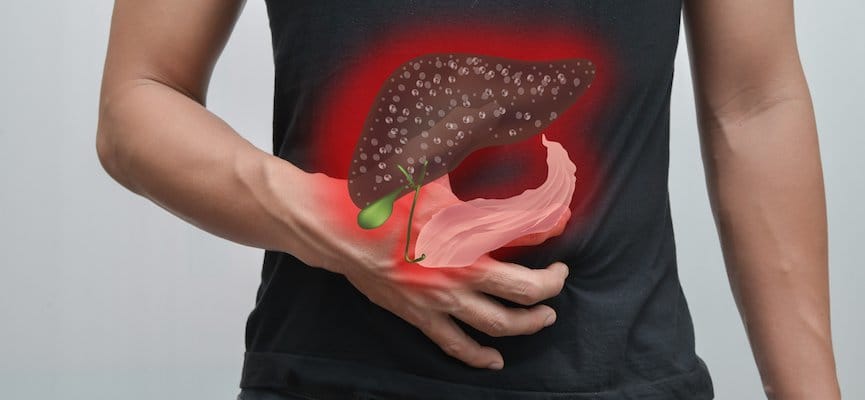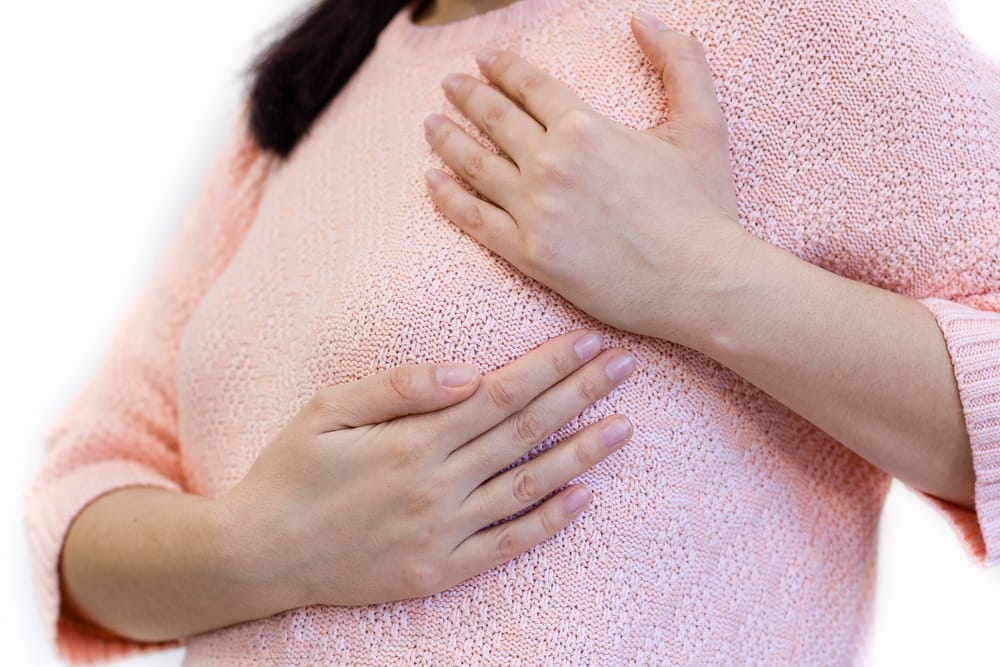Contents:
Medical Video: Jet air dryers 'spread bacteria from unclean hands'
About 80 percent of infectious diseases spread by hand - so washing hands with water and soap is very important - but is the way we dry our hands important too? Yes.
Even though you think that using a hand dryer is more hygienic and environmentally friendly than having to use sheets of tissue, this sophisticated machine actually carries a disgusting secret along with the roar of the wind.
You spread more germs when using a hand dryer
Public toilets contain germs and viruses. The reason these public places provide hygienic equipment such as toilet paper and electric hand dryers is to control the spread of germs that cause disease. However, not many know that hand dryers spread more germs than ordinary toilet paper.
This idea was proven by a group of research teams from the University of Westminster in early 2016. They compared groups of people who dry their hands with tissues and those who relied on the sophistication of hand dryers. The researchers compared three hand drying methods: toilet tissue, electric hand dryer (the most common type; where you put your hand under the muzzle and the machine will blow warm air; usually mounted on the wall), and a jet dryer (more hand dryer models modern where you have to put both hands into the engine gap and exhale warm air from all directions; the engine body is sturdy, stand alone).
The results showed that jet dryers spread more germs, about 1,300 times compared to using toilet paper and 60 times more than ordinary hand dryers.
How can a hand dryer machine become a germ nest?
If you're wondering how exactly a hand dryer can spread germs, the principle is quite simple - the newly washed hands aren't as clean as you think. There are still a number of germs attached. When you dry your hands with a dry tissue, you will remove the remaining germs that may still stick and throw them into the trash.
Another story if you use a drying machine. The air entering the drying machine contains far more germs than the air released. They also found that the level of microorganisms on the external surface of the hand dryer machine was not much different from the air around and on the surface of other washroom facilities. However, a research team from the University of Leeds, reported from Medical Daily, found that germs that live in air can spread almost 27 times faster than germs found on the surface of toilet paper dispensers. Worse yet, 48 percent of the bacteria drained from the hands of the participants still had an atmosphere of 15 minutes after they finished drying their hands with a jet dryer.
Other evidence brought by Redway and Fawdar in 2008, quoted from the journal Mayo Clinic Proceedings, showed that paper tissue dramatically reduced the number of all types of germs on the hands. Toilet paper reduces the number of germs by 77 percent. Meanwhile, drying machines actually increase the germs on the hands by 42 percent. In their study, Redway and Fawdar stated that they used a new electric dryer and jet dryer sample; therefore, they believe that any increase in the number of bad microorganisms after the use of dryers is due to factors other than contamination of the drying machine itself.
Even though this machine will definitely be faster and more efficient at drying your hands, the combination of moisture and germs floating in the air of your bathroom, your own hands, and warm air exhaled from the engine will push the battery to multiply more actively. Germs and viruses develop in warm temperatures, especially those close to body temperature. Therefore, the human body provides an ideal environment for various types of bacteria to grow. In addition, instead of entering into the trash, the germs spread almost three meters away from the dryer itself, making anyone around the dryer, including yourself, risk being exposed to germs.
Does this mean I can't use a hand dryer?
To be considered, these studies were carried out in a controlled lab environment using an unrealistic number of benign virus samples. The study was not carried out in a real-life scenario, where actual tissue dispensers in public toilets would contain more previously used germs and bacteria, even if they have fewer germs in the air. These studies also did not test how these various drying methods spread real, malignant bacteria that were larger and also caused disease.
In the end, the choice of using toilet paper or a sophisticated hand dryer machine goes back to personal preference. One thing is certain: unless you have medical reasons to increase extra vigilance around germs and bacteria, drying your hands in any way will not affect your daily life much.
READ ALSO:
- Steps for Cleaning Cellphones from Bacteria and Germs
- 5 objects that trigger allergies in the house
- 5 Unhealthy Habits You Often Do in the Bathroom

